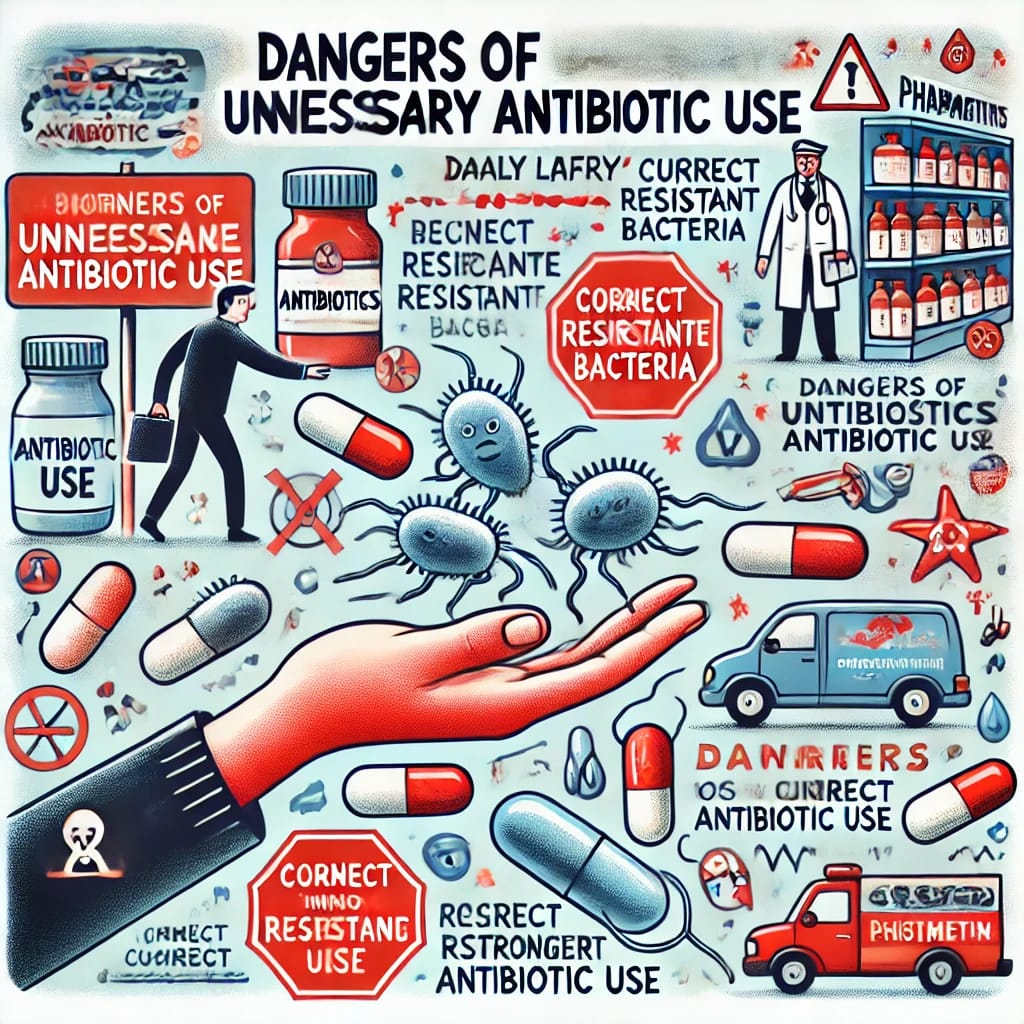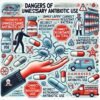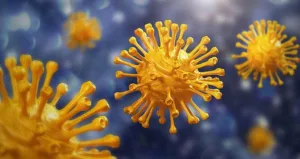
The Unnecessary Use of Antibiotics in Daily Life: A Growing Concern…
Antibiotics are powerful drugs that have transformed modern medicine by effectively treating bacterial infections and saving countless lives. However, they must be used wisely to maintain their effectiveness. Unfortunately, in recent years, there has been an alarming increase in the unnecessary usage of antibiotics in daily life. This overuse and misuse contribute to the rise of antibiotic resistance, posing a serious threat to public health worldwide. In this article, we’ll discuss the problem of unnecessary antibiotic usage, its causes, and how we can address it.
What Are Antibiotics?
Antibiotics are medications designed to kill or inhibit the growth of bacteria. They are highly effective in treating bacterial infections such as pneumonia, tuberculosis, and urinary tract infections. However, antibiotics are not effective against viral infections like the common cold, flu, or COVID-19. Despite this, antibiotics are often mistakenly prescribed or taken for viral illnesses, contributing to their overuse.
Why Unnecessary Antibiotic Usage is a Problem
The primary issue with unnecessary antibiotic usage is the development of antibiotic resistance. When bacteria are frequently exposed to antibiotics, they adapt and develop resistance, making the antibiotics ineffective over time. As a result, infections that were once easily treatable with antibiotics become difficult to cure, requiring stronger and more expensive medications or even becoming untreatable.

Antibiotic Resistance: This is a serious global health issue. According to the World Health Organization (WHO), antibiotic resistance could cause up to 10 million deaths per year by 2050 if left unchecked. Infections that were once easily treated, such as urinary tract infections or tuberculosis, may become life-threatening.
Impact on Public Health: Resistant infections lead to longer hospital stays, higher medical costs, and increased mortality. The overuse of antibiotics in daily life contributes to the rapid spread of antibiotic-resistant bacteria in communities, hospitals, and the environment.
Environmental Impact: Antibiotics that are not fully absorbed by the body are often excreted and find their way into water systems, affecting natural ecosystems. This environmental exposure contributes to the development of antibiotic-resistant bacteria in soil and water.
Causes of Unnecessary Antibiotic Usage
Several factors contribute to the unnecessary use of antibiotics in daily life, including:
- Misconceptions About Antibiotics: Many people mistakenly believe that antibiotics are a “cure-all” for various ailments, including viral infections like colds or the flu. This misconception leads to self-medication or pressure on healthcare providers to prescribe antibiotics.
- Self-Medication: In many countries, antibiotics are available over-the-counter, making it easy for people to self-medicate. Without proper knowledge, people may take antibiotics for incorrect reasons, incorrect dosages, or without completing the full course, leading to resistance.
- Incomplete Courses of Antibiotics: Sometimes, people stop taking antibiotics as soon as they feel better, without completing the full course prescribed by their doctor. This partial exposure allows bacteria to survive and adapt, becoming resistant to the drug.
- Overprescribing by Healthcare Providers: Some healthcare providers may prescribe antibiotics as a precautionary measure or due to pressure from patients. In some cases, doctors might prescribe antibiotics to avoid potential complications, even if they believe an infection may be viral.
- Use of Antibiotics in Agriculture: Antibiotics are often used in livestock and poultry farming to prevent disease and promote growth. When people consume these animals, they can ingest antibiotic-resistant bacteria, which can spread to humans and the environment.
Effects of Unnecessary Antibiotic Usage
The excessive and unnecessary use of antibiotics has widespread effects on health, the environment, and society:
Health Risks: The misuse of antibiotics leads to stronger, more resistant bacterial infections. These infections are harder to treat and may require more potent drugs with greater side effects.
Increased Healthcare Costs: Resistant infections require longer hospital stays, more intensive care, and expensive treatments, adding to the financial burden on both individuals and healthcare systems.
Loss of Effective Treatment Options: As bacteria develop resistance, our arsenal of effective antibiotics diminishes. This loss threatens medical advancements such as surgery, cancer treatment, and organ transplants, where antibiotics are essential to prevent infections.
Global Spread of Resistance: Resistant bacteria do not respect borders. They can spread through international travel, food imports, and trade, making antibiotic resistance a global health threat.
How to Avoid Unnecessary Antibiotic Usage
Addressing this issue requires awareness and action at every level, from individuals to healthcare systems and governments. Here are some steps to help prevent the unnecessary use of antibiotics:
- Follow Prescriptions Carefully: Only take antibiotics when prescribed by a qualified healthcare professional. Avoid self-medicating or sharing antibiotics with others.
- Understand When Antibiotics Are Needed: Educate yourself on the types of infections antibiotics can treat. Remember that they are only effective against bacterial infections, not viral infections like colds or the flu.
- Complete the Full Course: Always finish the entire course of antibiotics as prescribed, even if you feel better before the course is complete. This ensures that all bacteria are eliminated, reducing the risk of developing resistance.
- Avoid Over-the-Counter Antibiotics: In countries where antibiotics are available without a prescription, resist the temptation to self-medicate. Seek medical advice before using antibiotics.
- Encourage Responsible Prescribing: Healthcare providers should be cautious and only prescribe antibiotics when absolutely necessary. They can also educate patients on the importance of using antibiotics responsibly.
- Promote Good Hygiene Practices: Preventing infections in the first place reduces the need for antibiotics. Practice good hygiene, like regular hand washing and proper food handling, to reduce the spread of bacterial infections.
- Reduce Antibiotic Use in Agriculture: Governments and agricultural industries should work together to reduce the use of antibiotics in livestock and poultry farming. Opt for organic or antibiotic-free products when possible.
Global Efforts to Combat Antibiotic Resistance
To combat this problem, international organizations like the WHO, CDC, and FAO have launched initiatives to promote awareness and reduce antibiotic misuse:
World Antimicrobial Awareness Week: An annual event organized by the WHO to raise awareness about the proper use of antibiotics and the dangers of resistance.
Surveillance Programs: The WHO’s Global Antimicrobial Resistance Surveillance System (GLASS) monitors antibiotic resistance trends globally, helping countries identify and address resistance patterns.
Public Awareness Campaigns: Educational programs aim to inform people about antibiotic resistance, its consequences, and the importance of using antibiotics responsibly.
Conclusion
The unnecessary use of antibiotics is a pressing issue that affects us all. By using antibiotics responsibly, educating ourselves on their proper use, and supporting policies that reduce misuse, we can preserve the effectiveness of these crucial drugs. Antibiotic resistance is a global threat that requires immediate action. Together, through individual efforts and collective initiatives, we can prevent the misuse of antibiotics and protect public health for future generations.









Add comment